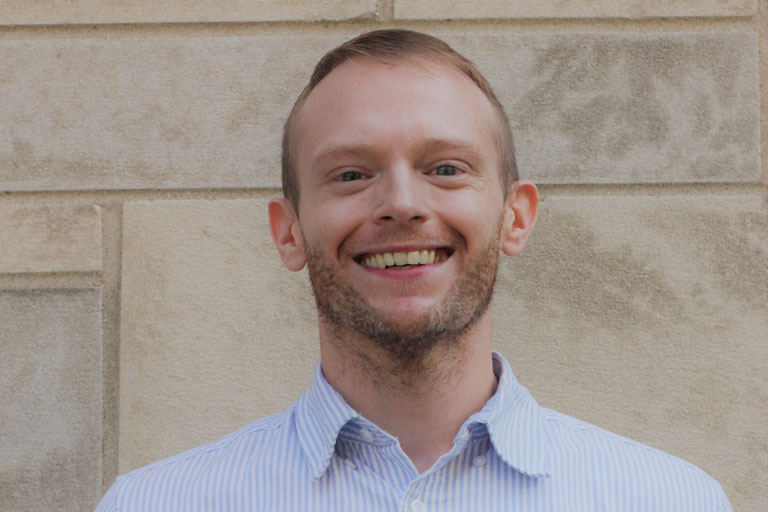From Feb. 14-16, several IU students attended the Midwest Bisexual Lesbian Gay Transgender Asexual College Conference (MBLGTACC) held in Kalamazoo, Michigan. One of these students was Brandon Merritt, a third-year Ph.D. student in Speech, Language, and Hearing Sciences with an interest in transgender speech and voice. Merritt attended the conference for the second time on the James Fielding LGBTQ+ Student Advocacy & Leadership Scholarship which is administered by the Office of the Vice President for Diversity, Equity, and Multicultural Affairs. First, as a student and then as a workshop presenter.
“Travel is always hard on a student stipend,” Brandon said. “So I am very thankful to Mr. Fielding and this scholarship for allowing me to present my work to an audience who isn’t in my department. I got to meet him last Friday when he received an award from the LGBTQ+ Alumni Association, and it was nice to put a face and a personality to someone who has helped me so much.”
To apply for the scholarship, Brandon had to submit a letter of justification as well as an abstract outline of his workshop.
Brandon’s workshop, Look Who’s Talking: Gender, Sexuality, and the Voice explored the many ways identity is coded in voices, how ideas of ‘typical’ voices develop, strategies for working toward achieving an authentic voice, and the role of trans and non-binary identities in shaping the future of communication technology.”
In his presentation, Brandon touched on several topics such as masculine vs. feminine voice markers, transmasculine and transfeminine voice changes, and how gender-neutral technology could impact the future.
“When I attended last year, I wasn’t too sure if I could lead a workshop,” Brandon said. “But then I looked at it from the perspective of gender information and voice and how technology and apps like Siri and Alexa and smart devices use speech and voice to process information. A lot of these technologies predict how you are going to sound and base a lot of features on male or female speech.”
Attending the MBLGTACC gave Brandon the chance to show his work to a new audience, which in turn gave him an opportunity for valuable feedback from the attendees. One of the most common questions was, “why is this important?”
“We do live in a world focused on the binary,” Brandon said. “And a lot of people feel more comfortable identifying with that binary. So I think there is a need for speech and voice training services that help improve the quality of life for trans people. And this research can help us gain a better understanding of how we process gender information and the importance of gender information in speech and voice.”
The conference also allowed Brandon to explore beyond his viewpoints and understand the perspectives of those more marginalized than himself. In writing about his experience, Brandon said, “I can better check my privilege to more clearly understand the opportunities given to me not afforded to persons who fall outside of white, cis-normative standards.”


